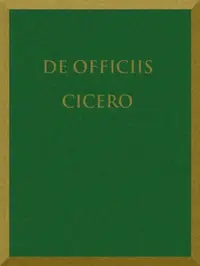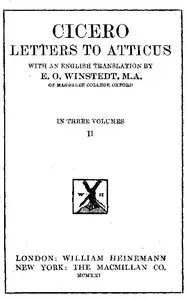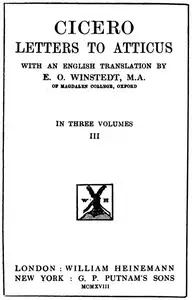"De Officiis" by Marcus Tullius Cicero is a philosophical treatise written in the 1st century BC. The work focuses on ethical principles, particularly moral duties and their applications in public and private life. Cicero, addressing his son Marcus, draws on Greek philosophy to present a practical guide to ethical behavior—essentially outlining the obligations one has towards oneself and society. The opening of "De Officiis" establishes the context for this ethical exploration as Cicero writes to his son, who is studying in Athens. He emphasizes the importance of combining Greek and Latin studies for a comprehensive understanding of philosophy and oratory. Cicero then discusses the practical importance of moral duties, asserting that these obligations are ubiquitous in life and form the foundation of moral goodness. He highlights the differences between absolute duties and those dependent on situations, introducing the philosophical frameworks he will build upon throughout the treatise, primarily drawing on Stoic thought. (This is an automatically generated summary.)

De Officiis
By Marcus Tullius Cicero
"De Officiis" by Marcus Tullius Cicero is a philosophical treatise written in the 1st century BC. The work focuses on ethical principles, particularly...
Marcus Tullius Cicero was a Roman statesman, lawyer, scholar, philosopher, writer and Academic skeptic, who tried to uphold optimate principles during the political crises that led to the establishment of the Roman Empire. His extensive writings include treatises on rhetoric, philosophy and politics. He is considered one of Rome's greatest orators and prose stylists and the innovator of what became known as "Ciceronian rhetoric". Cicero was educated in Rome and in Greece. He came from a wealthy municipal family of the Roman equestrian order, and served as consul in 63 BC.


















